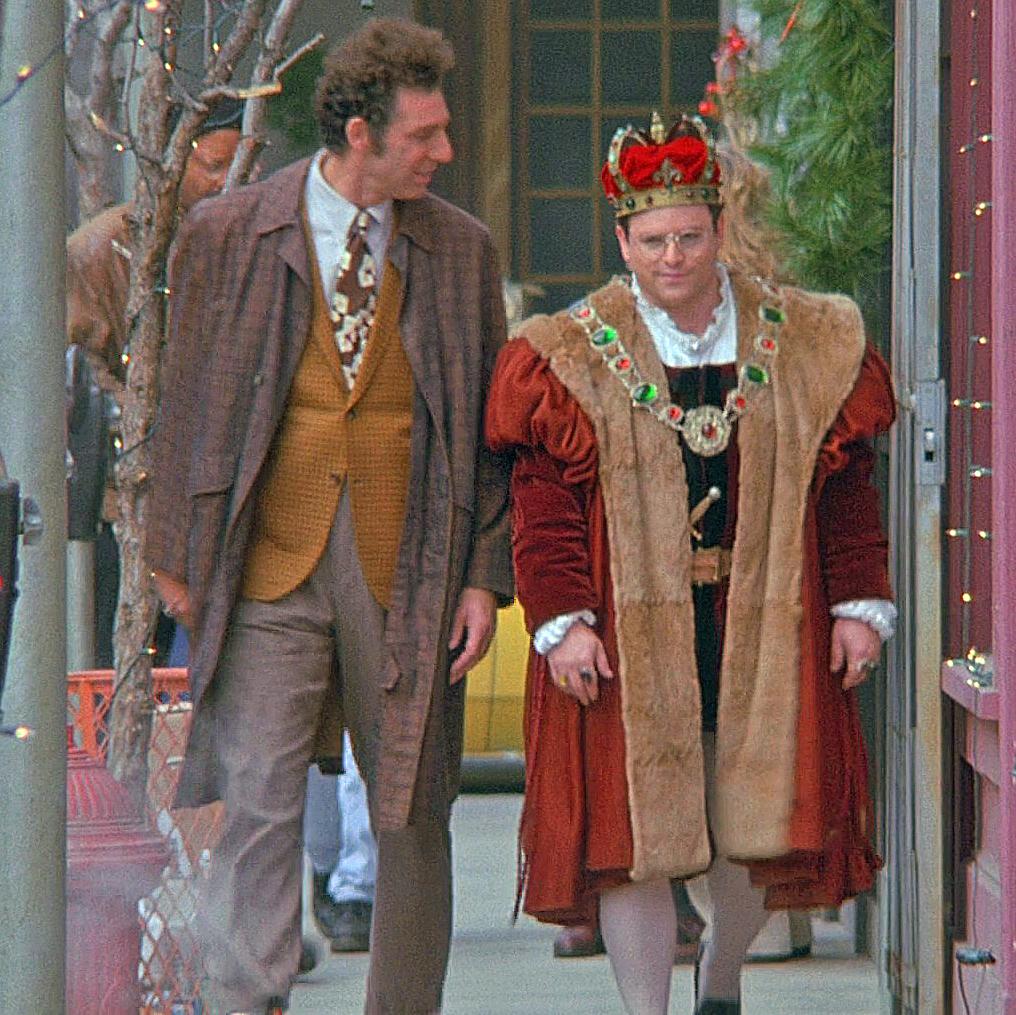
“Seinfeld” and William Shakespeare’s “Macbeth” may seem worlds apart in terms of genre, tone, and historical context, but a closer examination reveals intriguing similarities and thematic connections. While “Seinfeld” is a groundbreaking sitcom known for its observational humor about everyday life, “Macbeth” stands as one of Shakespeare’s most powerful tragedies, delving into themes of ambition, power, and moral decay. This essay explores the unexpected parallels between these seemingly disparate works.
Ambition and Moral Dilemmas
“Macbeth” and “Seinfeld” share a thematic thread centered around ambition and its consequences. In “Macbeth,” the titular character’s insatiable ambition drives him to commit heinous acts, leading to his moral deterioration and eventual downfall. In “Seinfeld,” the characters’ ambitions are less grandiose, yet the pursuit of trivial desires often results in morally questionable decisions and comedic chaos. Jerry, George, Elaine, and Kramer navigate the moral landscape of their mundane lives, exploring the consequences of their self-centered ambitions.

Moral Ambiguity and Consequences
In both works, moral ambiguity reigns supreme. “Macbeth” presents a tragic hero who succumbs to the allure of power, leading to a descent into darkness. “Seinfeld,” on the other hand, features a quartet of characters whose self-absorption often leads to humorous and morally ambiguous situations. While the consequences in “Macbeth” are tragic and fatal, the consequences in “Seinfeld” are comically exaggerated, highlighting the absurdity of everyday moral quandaries.

Social Commentary
“Seinfeld” and “Macbeth” offer social commentary in different forms. “Macbeth” critiques the corrupting influence of unchecked ambition on both individuals and society. In contrast, “Seinfeld” offers a satirical lens through which to view the trivialities and idiosyncrasies of modern life. The sitcom’s observational humor serves as a commentary on the absurdities of social conventions, interpersonal relationships, and societal expectations, albeit in a lighter and more comedic manner than the somber tones of “Macbeth.”

Character Relationships
Both works explore complex relationships among characters. In “Macbeth,” the relationships are steeped in political intrigue, betrayal, and a tragic unraveling of trust. In “Seinfeld,” the relationships are more lighthearted but similarly rife with betrayal, misunderstandings, and the characters’ self-serving motives. The sitcom’s unique approach to interpersonal dynamics is characterized by the characters’ inability to maintain stable relationships, adding a layer of humor to the exploration of human connections.
While “Seinfeld” and “Macbeth” differ vastly in genre, style, and thematic emphasis, a comparative analysis reveals intriguing parallels in their exploration of ambition, moral consequences, social commentary, and complex relationships. These works, separated by centuries and genres, both offer valuable insights into the human condition, illustrating that whether through tragedy or comedy, the examination of human nature and societal norms remains a timeless and universal pursuit in literature and entertainment.
